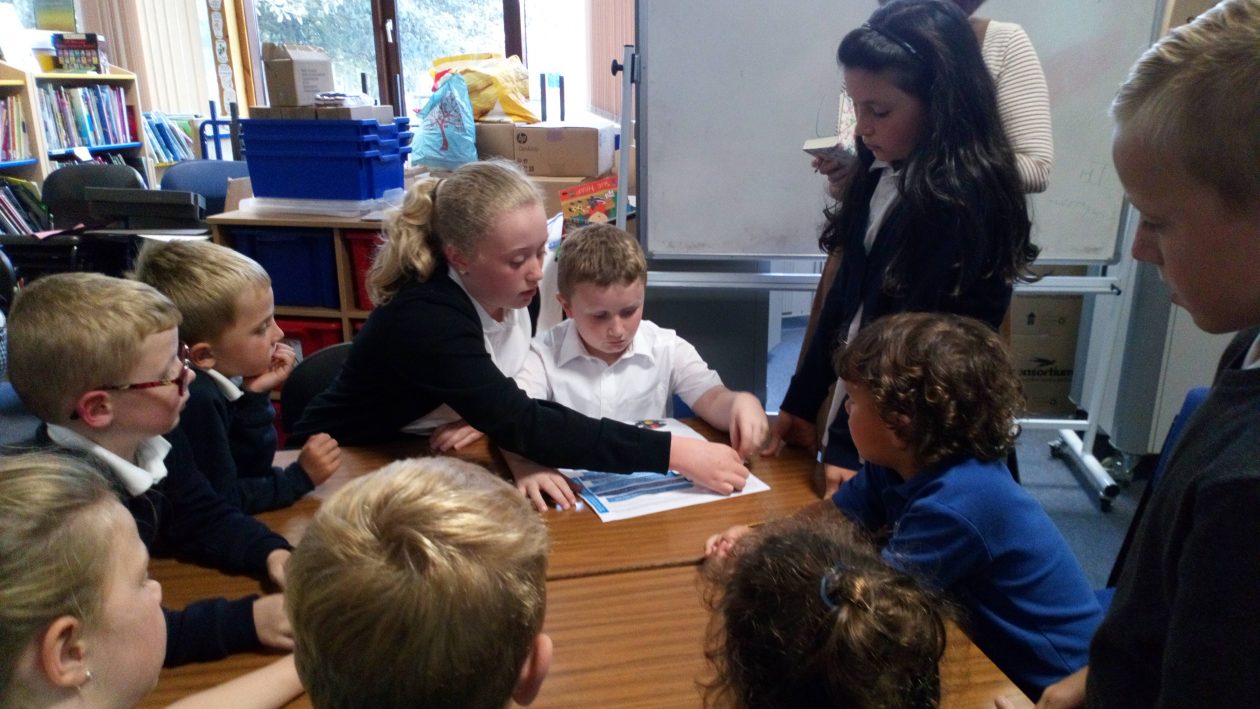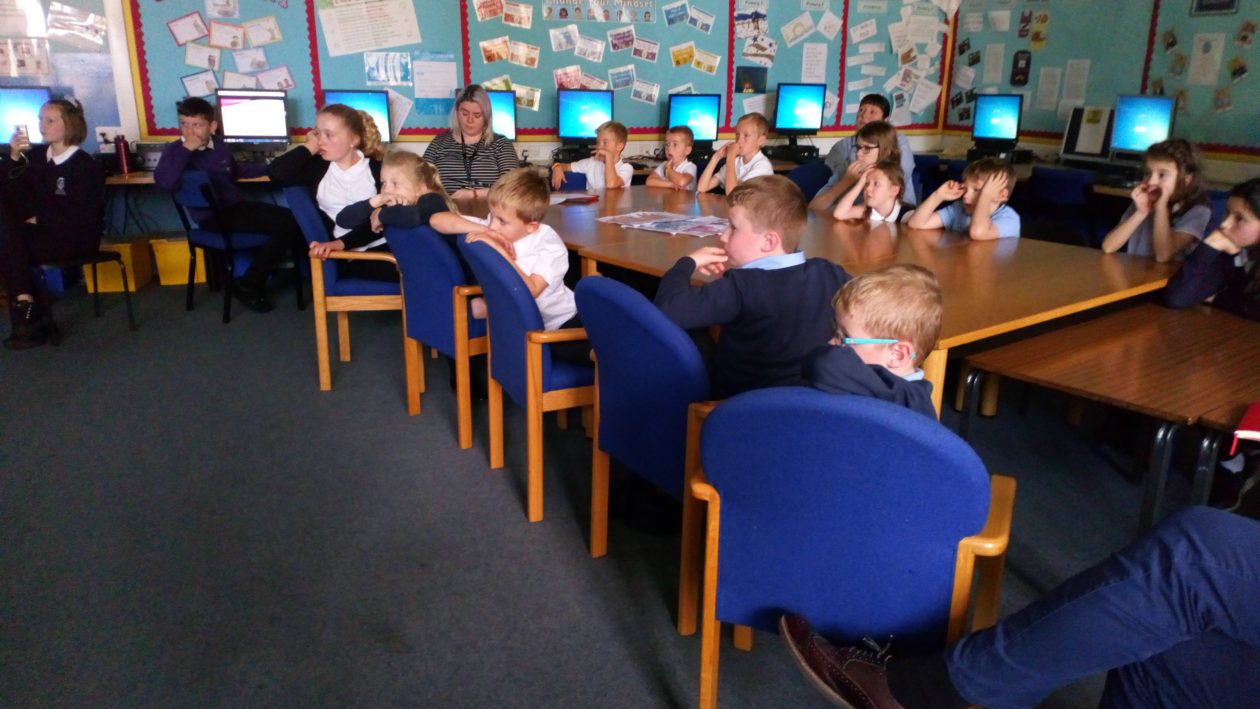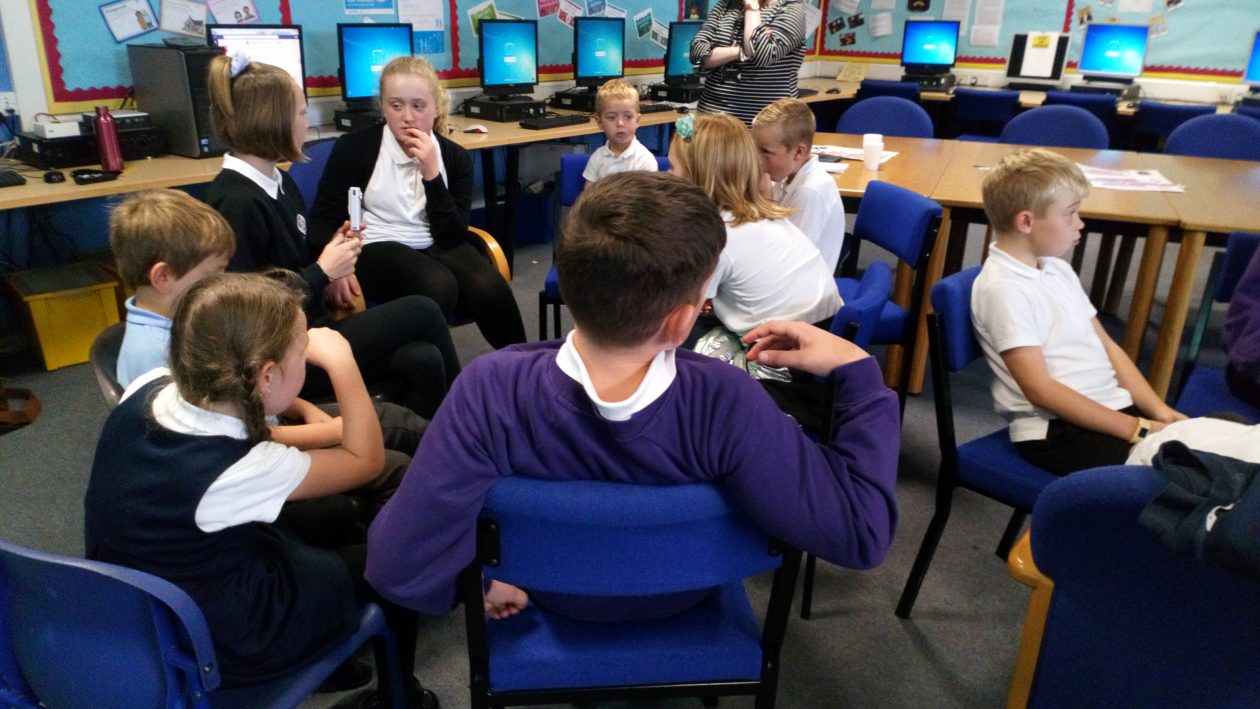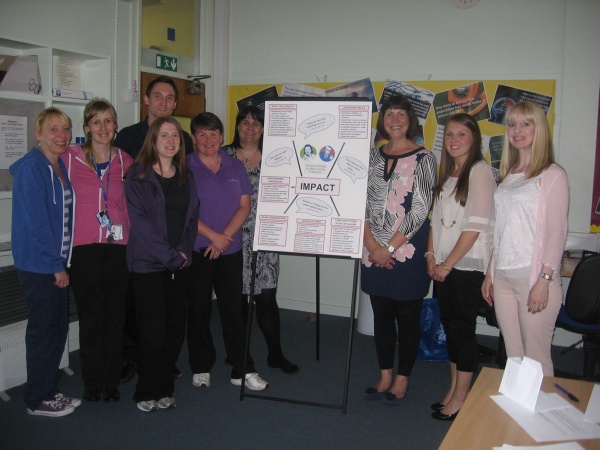
In May 2019, Beverley Keith, head teacher at Laurieston PS and Yvonne McBlain, curriculum support officer, met to explore how to meaningfully involve staff, pupils, parents and the local community in the school’s review of its curriculum rationale and development. Beverley and Yvonne outlined a proposal which aimed to:
- Develop pupil understanding of the curriculum (so that they have a more informed voice in its development)
- Provide opportunities for pupil, staff, parent and other stakeholder reflection on what a Laurieston School curriculum should provide
- Ensure that all voices in our school and community shape and inform our curriculum
- Explore links and ways to connect or streamline our curriculum
- Build on good practice in teaching and learning

This proposal was shared with staff alongside a suggested schedule for pupil and staff involvement. These were examined during an August inset afternoon where staff also explored the latest advice regarding the curriculum and self-evaluated what was working well and what they wanted to do to improve their curriculum. Yvonne set up a Microsoft Teams area within Glow so that staff could collate this evidence relating to HGIOS QI 2.2 Curriculum and make it easy for them to access (we noted that this would also cut down on workload and paperwork when preparing for VSE or HMIE).

Staff were enthusiastic about involving their other stakeholders in their curriculum rationale review process and used a collegiate session to explore how other schools were using HGIOURS (Education Scotland 2018) for this purpose. Yvonne shared developments at Avonbridge PS and Shieldhill PS and staff agreed that they wanted to adapt the HGIOURS toolkit Yvonne created for use in enabling pupils to shape their curriculum (click here to find out more about this toolkit). Laura Gavin, senior early years officer, and Claire Thompson, primary 6 class teacher volunteered to lead this process with the new pupil council appointed by their pupils. Sixteen pupils representing every class in the school and nursery met in early September to engage with the toolkit and begin their evaluation of their Laurieston curriculum.

Laura and Claire met regularly with pupils over the next month to support them in exploring how they could address the areas for development they had identified. They were very interested to hear how Shieldhill PS pupils were doing this in their school so invited them for a visit. On 23rd September four pupils from Shieldhill PS shared their process with Laurieston’s pupil council members (read more about this by clicking here). When asked how this helped pupils said:
“It’s been a great visit cos we get their ideas and maybe we can change them a wee bit.”
“We’ve been taught stuff we didn’t know… like about that Glow stuff.”
“I like how everything was unique to them.”
“I like having someone else’s input and opinion.”

Laura and Claire also valued the opportunity to hear what the pupils had done and were extremely impressed by how confident they were in answering questions (with no initial preparation) sharing their process and skills. The Laurieston PS pupils seemed particularly interested in the idea of hosting a school assembly and using the toolkit in some way to gather all pupil voices. Just before they left Shieldhill pupils said they had also benefited from the visit and would value “another catch up – maybe you could come to us?”

Laura, Claire and Yvonne discussed next steps when the children went back to class. Laura and Claire decided to work with their pupil council members the following week to support them in pulling together next steps and exploring whether and how the original schedule was still appropriate in the light of the progress and ideas put forward by their children. Yvonne is on standby if needed and is excited to see what happens next…












